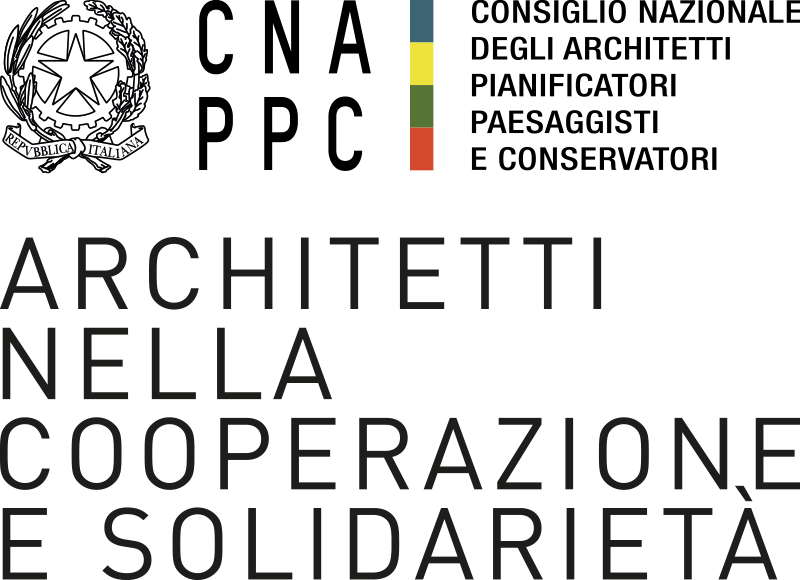THE CULTURE OF THE AID PROJECT
Some notes on what is defined as a humanitarian project: its cycle and its tools.
The strategic vision: the ability to identify critical points, strengths, the factors that are controllable and those that are not. The awareness that every push always generates a counter-push that must be anticipated and calculated (e.g.: if I teach too many people to fish, there will soon be very few fish left in that area).
On the basis of this ability, to define targeted, effective and sustainable intervention strategies.
The Logical Framework (LFM): to date the most commonly used design tool in the formulation of humanitarian projects in their different phases. It is a matrix with general and specific objectives, indicators, risk factors, activities, etc.
The fundamental question for architects (and that architects often do not understand) is that in a humanitarian project the structure built can never be considered an end in itself, but simply one of the different tools capable of stimulating a process (the question is not to build a school, but to give the opportunity to X students to receive an educational offer in a specific physical, social, cultural and political context). An example: sometimes it’s better to have the school built by the local people, because if it is too grand, it could be destined for other uses, if it is too hi-tech they have a hard time maintaining it, or maybe it’s better to build it in another place. In other cases, maybe the best thing to do is to get hold of a machine that can make bricks of compressed earth and show them how to build a school, so afterward instead of one schoolhouse, they can build all the schoolhouses they need in the area… and they’ve acquired a skill.
THE ITALIAN PLAYERS IN COOPERATION FOR DEVELOPMENT
The Republic recognizes and promotes the Italian system of cooperation for development, composed of private and public actors, with the intention of realizing programs and projects of cooperation for development based on the principle of subsidiarity.
The components of the system of cooperation for development are:
- state administrative bodies, universities and other public agencies;
- Regional governments, the autonomous provinces of Trento and Bolzano and local bodies;
- non-governmental groups and other non-profit associations, as defined in article 26;
- profit-making subjects, if they act in compliance with the principles of this law and meet the generally recognized standards of social responsibility and environmental clauses, as well as respecting the norms on human rights for international investments;
- Italy promotes the participation in cooperation for development of non-governmental groups and other non-profit associations, based on the principle of subsidiarity.
The following non-governmental organizations and other non-profit associations are recognized as actors in development cooperation:
- non-governmental organizations (NGO) specialized in development cooperation and humanitarian aid;
- non-profit organizations of social utility (ONLUS) whose charter specifies their goals as development cooperation and international solidarity;
- fair trade organizations, ethical banking and microcredit groups whose charter indicates their primary objective as international development cooperation;
- organizations and associations of immigrant communities that maintain relations of cooperation and development support with the communities of the countries of origin or that collaborate with subjects who meet the requirements of this article and are active in the countries involved;
- cooperative and social enterprises, trade unions of workers and entrepreneurs, foundations, voluntary organizations referred to in Law no. 266 of 11 August 1991, and the associations of social promotion referred to in Law no. 383 of 7 December 2000, if their statutes provide for development cooperation among the institutional purposes;
- organizations with registered office in Italy that have enjoyed consultative status with the United Nations Economic and Social Council (ECOSOC) for at least four years.
